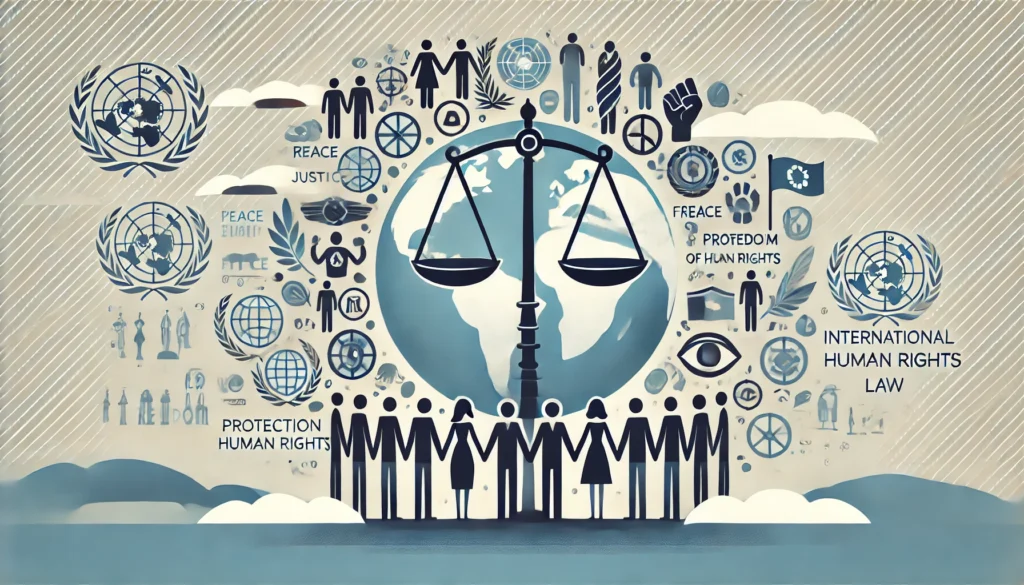Published On: 22nd June 2025
Authored By: Anukriti
MDU-CPAS, Gurugram
Case title and citation
Shayara Bano v. Union of India, WP (C) 118/2016
Court and Bench
Supreme Court of India, 5- Judge Bench
Date of Judgement
22nd August 2017
Introduction
The Shayara Bano case represents a pivotal ruling by the Supreme Court, effectively rendering the practice of Triple Talaq, or Talaq-e-biddat, as unlawful. On August 22nd 2017, the 5 judge bench declared the practice as unconstitutional by a 3:2 majority.
Under the Muslim law, there are three ways to pronounce divorce. Talaq, simply understood, is a divorce at the instance of husband, other type being khula, at the instance of wife and lastly ‘mubaraat’ which is a mutual divorce. Talaq further is of three kinds. ‘Talaq- e- ahsan’, ‘Talaq- e- hasan’ and ‘Talaq- e- biddat’. Among these three, talaq- e- ahsan is considered to be the most reasonable form of divorce. Both Talaq- e- ahsan and Talaq- e- hasan are both approved by Quran and Hadith whereas Talaq- e- biddat is neither recognized in Quran nor in Hadith.
Although Talaq-e-ahsan and Talaq-e-hasan are not issues, talaq-e-biddat presents a significant problem since the husband can instantly pronounce talaq three times consecutively through any means of communication, ending the marriage immediately and leaving the wife unprotected. This posed a significant danger to women infringing upon their basic rights, especially Article 14 and Article 21 of the Indian Constitution.
The significant ruling in the Triple Talaq case, as decided by the Supreme Court of India, became a central topic for discussions on the convergence of personal law, constitutional values, and gender equity. The court instructed Parliament o implement legal actions against the practice of Triple Talaq.
Case background
Shayara Bano and Rizwan Ahmed married in 2002 in Uttar Pradesh. Bano claimed her husband pressured her family for a dowry and mistreated her when they couldn’t provide more. In October 2015, Ahmed divorced Bano using talaq-e-biddat, an Islamic practice where a man can instantly divorce his wife by repeating “talaq” three times, without her consent.
In February 2016, Bano filed a petition with the Supreme Court, challenging talaq-e-biddat, polygamy, and nikah-halala. She argued these practices violated her rights to equality, non-discrimination, and livelihood. She also asserted that religious freedom should not override basic rights like public order and morality.
The Court called for submissions from various organizations, including the All India Muslim Personal Law Board (AIMPLB), the Union Government, and women’s rights groups. Most organizations, except the AIMPLB, supported Bano’s stance. The AIMPLB argued that talaq-e-biddat was a fundamental practice in Islam, protected under the Right to Freedom of Religion.
In March 2017, the Supreme Court formed a five-judge bench to hear the case. After hearings in May 2017, the Court ruled in August 2017, with a 3:2 majority declaring talaq-e-biddat unconstitutional, deeming it arbitrary. The dissenting judges felt the practice was protected by religious rights and should be regulated by Parliament.
In July 2019, Parliament passed the Muslim Women (Protection of Rights on Marriage) Act, making talaq-e-biddat illegal, punishable by up to three years in prison. However, several Islamic groups, including Jamiat Ulama-I-Hind, filed petitions against the law, and the Supreme Court has yet to consider these challenges.
Issues related
- Is the practice of Talaq- e- biddat (specifically- instantaneous triple talaq) an essential practice of Islam?
- Does the practice of Triple Talaq violate any fundamental right?
Arguments of the parties
Petitioner
The petitioner raised mainly three issues before the hon’ble court. They deal with instant talaq by the husband, the practice of nikah halala and polygamy. It was submitted by the petitioners that the learned men like religious officers and priests; imams, maulvis, etc, who propagate, support and authorize practices like talaq- e- biddat, nikah halala and polygamy are grossly misusing their positions, influence and power to subject Muslim women to such gross practices which treat them as chattel, thereby violating their fundamental rights enshrined in Article 14, 15, 21 and 25 of the Constitution.
The petitioner contended that practice of triple talaq has been banned in many Islamic nations but still continue to vex in Indian society. The practice also wrecks havoc to lives of women and their children. Such kind of practice seems abominable in the 21st century. While this practice in itself is a havoc, whats more devastating is that if the husband pronounces talaq via talaq- e- biddat and wants to remarry his wife, the wife has to undergo nikah halala, which involves consummate another marriage, then divorce the second husband, only after that she can remarry her first husband.
Moreover, the petitioner also contended that polygamy in Islam is as devil as Sati used to be in Hindu practices. It is mentioned that in Sarla Mudgal case[1], bigamous marriage has been made punishable amongst the Christians by the Christian Marriage Act, 1872[2], amongst Parsis by Parsi Marriage and Divorce Act, 1936[3], and amongst Hindu, Buddhists, Sikhs and Jains by the Hindu Marriage Act, 1955[4]. Whereas, the Dissolution of Muslim Marriage Act, 1939 does not secure muslim women the protection of bigamy which has been statutorily been provided to Indian women belonging to other religion. Finally, the petitioner argues that this practice is both socially unacceptable and legally untenable.
Respondents
The All India Muslim Personal Law Board (AIMPLB) has contended that the petitions challenging Muslim Personal Laws, such as Triple Talaq, Halala and Polygamy are not valid. They argue that these petitions seek to enforce fundamental rights against private individuals, which is outside the scope of Article 32 of the Constitution. The Board has asserted that Articles 14, 15 and 21 are intended to protect individuals from state actions, not from private practices. Therefore, the judiciary should refrain from intervening in personal laws that are governed by religious tenets.
Furthermore, AIMPLB has stated that the issues raised have already been addressed in previous judgments, such as in the Ahmedabad Women Action Group case[5], where the court declined to invalidate Muslim Personal Laws on constitutional grounds. The Board has emphasized that personal laws are integral to the religious identity of Muslims and should be protected under Article 25 and 26, which guarantee the freedom of religion. They have argued that any changes to these laws should occur through legislative processed, respecting the principles of parliamentary democracy and separation of powers, rather than through judicial interpretation, which could undermine the independence of the judiciary and the essence of democracy.
Judgment
The Supreme Court declared the practice of Triple Talaq as unconstitutional with a majority of 3:2.
Majority: Rohinton Nariman J. and U.U. Lalit J.
Concurring: Kurian Joseph J.
Dissenting: CJI J.S. Khehar and Abdul Nazeer J.
Judges – CJI Jagdish Khehar and Justice Abdul Nazeer
The practice of Triple Talaq is part of Muslim law & through Article 25 every citizen has the right to religion means through Article 25 these practices are protected. And though they are protected, SC cannot interfere in them. Is Triple Talaq valid or not? Should it get banned or not?
This cannot be decided by the judiciary. It can be done by Parliament. Judges have suggested that the Triple Talaq judiciary is applying for a 6 months stay on it. And in these 6 months the parliament had to decide whether Triple Talaq was valid or not.
Instant Triple Talaq is a part of Muslim personal law, which is protected under Article 25 and Judiciary should not interfere. Let the Parliament make a call.
Judges- Justice Rohinton Nariman and Justice UU lalit
Whether the laws are before the making of the constitution or not. They all should have to constitute through Fundamental Rights. Yes, Article 13 does not interfere in personal law and we cannot challenge personal law. But ITT practice was not challenged in Article 13 it was challenged in article 14, 15, 21 & 25. According to Article 14- if anything is Arbitrary & it is violating fundamental rights then SC have the power to hold it unconstitutional. They stated that Instant Triple Talaq is arbitrary and violates the rights of women. Article 14 ≠ Arbitrariness.
Judge -Justice Kurian Joseph
He said Instant Triple Talaq practice is UN- ISLAMIC. Because in the traditional Muslim practice Talaq there is scope for Arbitration, Reconciliation, Settlement. He wrote, “What is held to be bad in the Holy Quran cannot be good in Shariat and, what is bad in theology is bad in law as well”.
So 2 judges said judiciary can’t interfere in ITT and 3 judges said ITT practice violates fundamental rights and it is unconstitutional.
Precedents and Statutes referred
Precedents
- Rashid Ahmad v. Anisa Khatun[6]
- Jiauddin Ahmed v. Anwara Begum[7]
- Must. Rukia Khatun v. Abdul Khalique Laskar[8] (Division Bench judgment, authored by Baharul Islam, CJ., as he then was)
- Mansoor Ahmed v. State (NCT of Delhi)[9] (Single Bench Judgment, authored by Badar Durrev Ahmed, J., as he then was)
- Nazeer v. Shemeema[10] (Single Bench Judgment, authored by A. Muhamad Mustaque, J.)
Statutes
- Article 14, 15, 21 and 25 of the Indian Constitution.
- Muslim Personal Law (Shariat) Application Act, 1937.
Conclusion and Impact
The Triple Talaq or Instant Triple Talaq or Talaq- e- biddat is a practice where the husband pronounces divorce to his wife instantly and in any form of communication has made its way to being criminalized by the Supreme Court. It has become one of the landmark judgments of the personal laws. The Supreme Court by the majority of 3:2 has struck down the practice of triple talaq that had, for centuries, left Muslim women vulnerable to instant and arbitrary divorce by making it unconstitutional and leading to the introduction of the Muslim Women (Protection of Rights on Marriage) Act, 2019. This ruling underscored that personal laws must align with constitutional principles, especially Article 14, 15 and 21, ensuring equality and dignity for all citizens, regardless of religious affiliation.
By declaring triple talaq unconstitutional, the judgment reaffirmed the primacy of fundamental rights over religious practices that infringe upon gender justice. While the judgment was celebrated as a victory for women’s rights, it also sparked debates on judicial overreach and the extent of state intervention on religious practices. The decision reignited debates on the Uniform Civil Code (UCC)- a constitutional directive under Article 44, which advocates for a common set of personal laws across religions. While some viewed the judgment as step towards UCC, others argued that religious freedoms under Article 25 must be preserved. Despite differing opinions, the verdict reaffirmed the Constitution’s commitment to gender equality, setting a precedent for future legal interventions in personal law.
Reference(s):
[1] Smt. Sarla Mudgal, President, Kalyani and Others v. Union Of India and Ors (1995) 3 SCC 635
[2] Christian Marriage Act, 1872 (No. XV of 1872)
[3] Parsi Marriage and Divorce Act, 1936 (No. III of 1936)
[4] Hindu Marriage Act, 1955 (No. XXV of 1955)
[5] Ahmedabad Women Action Group v. Union of India (1997) 3 SCC 573
[6] AIR 1932 PC 25
[7] (1981) 1 Gau. L.R. 358
[8] (1981) 1 Gau. L.R. 375
[9] 2008 (103) DRJ 137
[10] 2017 (1) KLT 300




What a precise description of 1000 pages judgement!
Really IMPRESSED dear author!!!!! 🫡